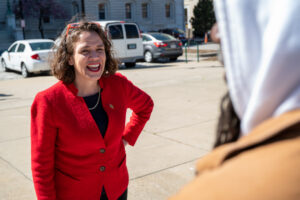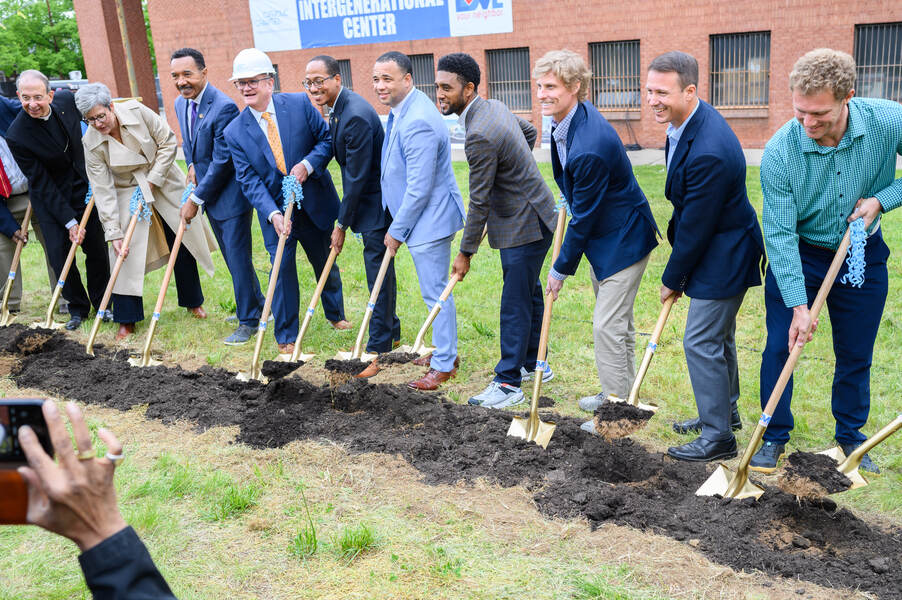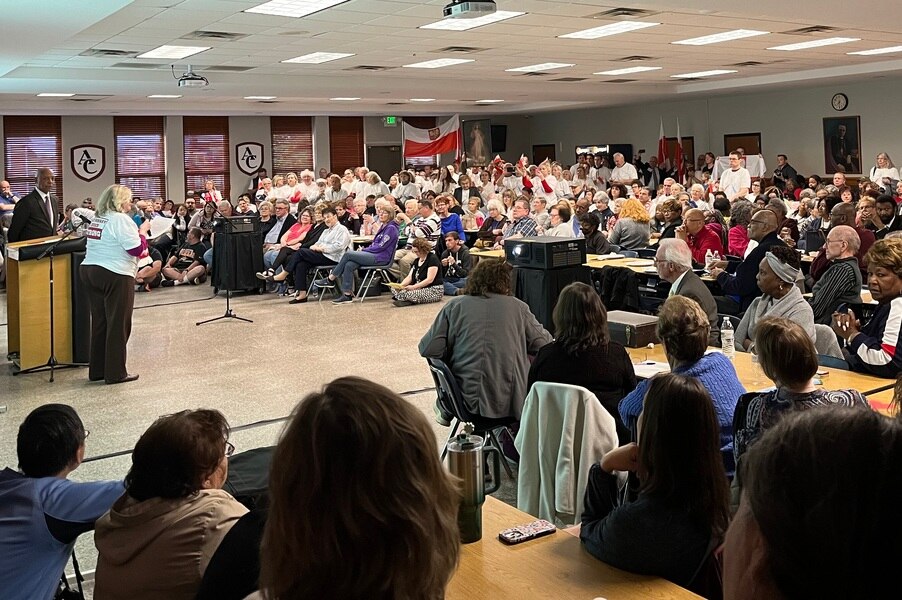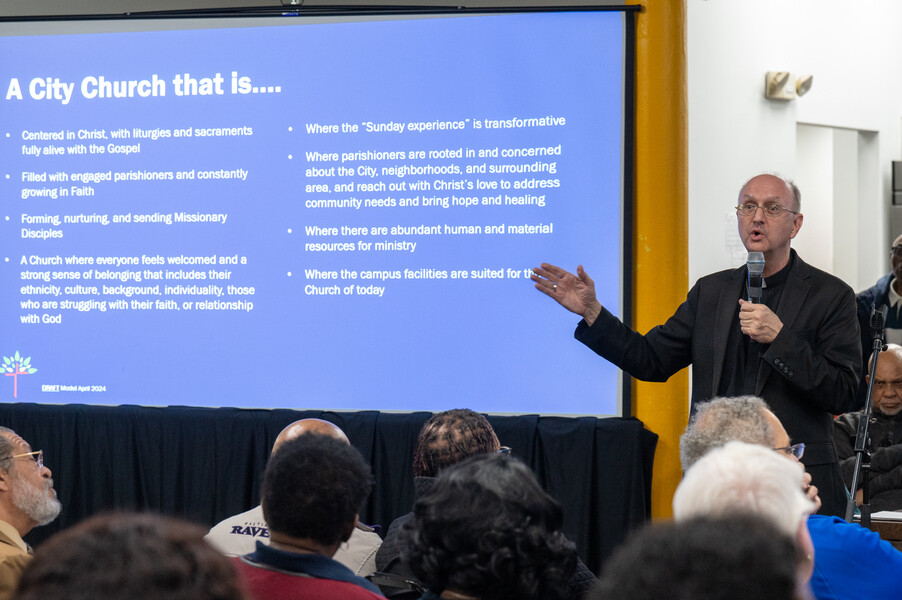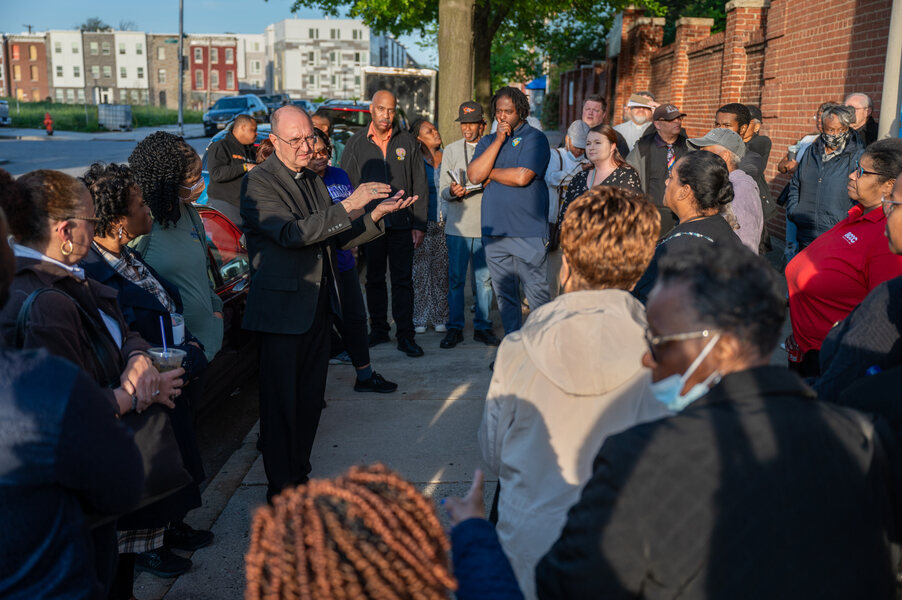Catholics in the Archdiocese of Baltimore are helping lead the push for new legislation that would cement inclusionary housing practices into law in Baltimore City.
Beyond the Boundaries, an archdiocesan program that supports inclusivity, joined a coalition that was trying to make its voice heard in front of City Hall. The Inclusionary Housing Association held a news conference March 22 outside City Hall to push for renewed legislation that would require developers in the city to provide affordable housing units in new housing construction.
A similar law (the Inclusionary Housing Law), enacted in 2007, expired in June 2022 after having little effect. The coalition wants the measure amended and extended. The previous law required developers to set aside affordable units for people with lower incomes.
“Developers are building luxury units and receiving large city subsidies,” said Maureen Daly, co-chair of the steering committee of Beyond the Boundaries. “We are saying we feel the City of Baltimore is subsidizing racial segregation, and they aren’t fulfilling federal housing requirements.”
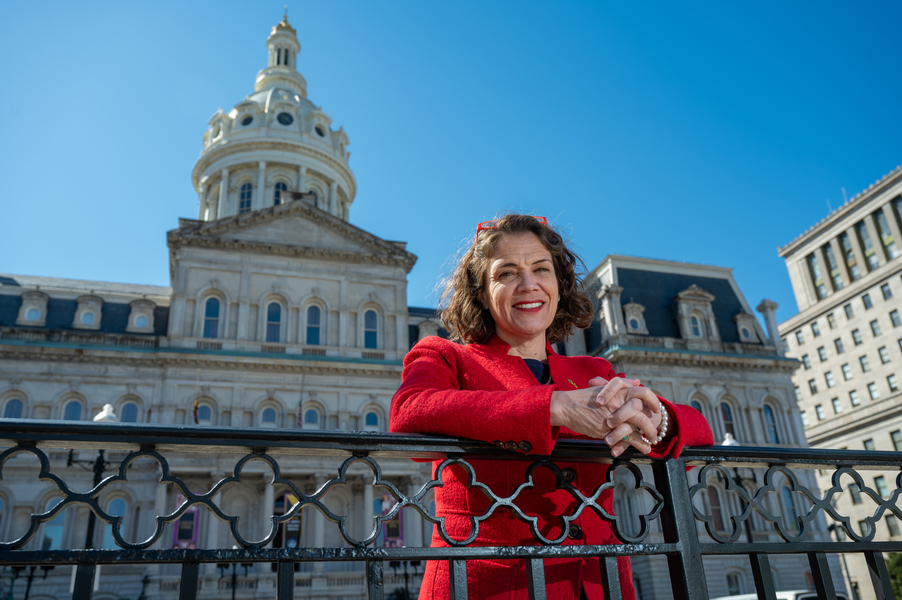
Beyond the Boundaries works with civic organizations, other churches and political leaders to advocate for public policies that will “enable all classes of people to live together in the same neighborhoods” throughout the Archdiocese of Baltimore.
Daly said the coalition thinks the city isn’t meeting its obligations under the U.S. Department of Housing and Urban Development’s Affirmatively Furthering Fair Housing plan. She said the previous law resulted in fewer than 40 affordable units developed.
The coalition also includes the Baltimore City Branch of the NAACP, Baltimore Renters United, Bridge Maryland, the Community Development Network, SHARE, Citizens Planning and Housing Association, Baltimore Regional Housing Partnership and Public Justice Center.
“What is concerning is that new projects are being approved that do not include inclusive housing,” said Daly, a parishioner of St. Vincent de Paul in downtown Baltimore. “The current policy continues to encourage economic and racial segregation. We believe inclusionary housing is a small step to encourage racial and economic diversity.”
Odette Ramos, who represents District 14 on the City Council and is a parishioner of St. Vincent de Paul, leads the legislative drive. She said she is confident the updated bill and a companion tax-credit bill introduced March 27 will be passed.
The bill would require subsidized developers constructing 20 or more units set aside 10 percent of housing at inclusionary prices. Ramos said the council is negotiating the final details of both bills and will hold hearings on both.
“We have to pass something,” Ramos said. “I’m looking forward to getting it done. Baltimore needs a comprehensive housing plan, a real plan for residents who are struggling. There’s a lot of trauma in our city. Housing is the basis for being able to address many of the issues in the city that create that trauma.
“Redlining and segregation in Baltimore started right here in City Hall,” she said. “Inclusionary housing is one of the best ways to reverse the racist policies of the past.”
Ramos said her Catholic upbringing ingrained the need to be of service. “It’s all part of caring for people,” she said.
Ramos and the coalition believe Council Bill 22-0195 would correct deficiencies in the expired law.
The bill also will require developers to market the affordable units to historically excluded households, including Black families, persons who use vouchers and other residents who have experienced discrimination.
Matt Hill, an attorney with the Public Justice Center, said there are no better tools than inclusionary housing laws to counteract discrimination and segregation. He noted that more than 200 jurisdictions throughout the nation, including Chicago, Philadelphia, Pittsburgh and Washington, D.C., have such laws.
“When developers are getting public dollars, there should be some public benefit,” said Hill, a parishioner of St. Ignatius in Baltimore. “Baltimore City is giving out about $38 million and getting nothing. We need to make sure we don’t repeat the mistakes of the past. Providing affordable housing is critical to stopping a separate and unequal society.”
Hill said developers are good at swaying city politicians, “playing Chicken Little, always saying the ‘sky is falling,’ and getting their way by threatening to pull their developments out of the city. What we need is some real leadership from the mayor and City Council.”
Email Gerry Jackson at gjackson@CatholicReview.org
Read More Local News
Copyright © 2023 Catholic Review Media
